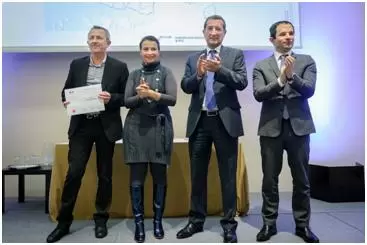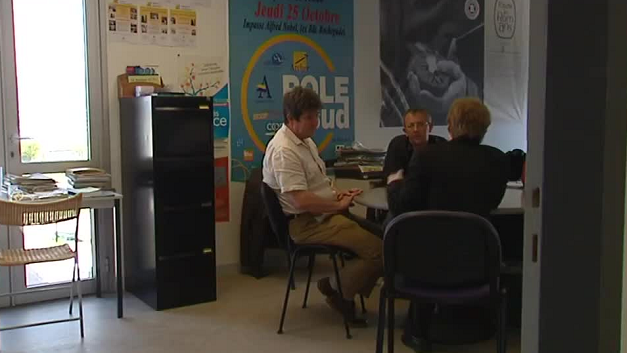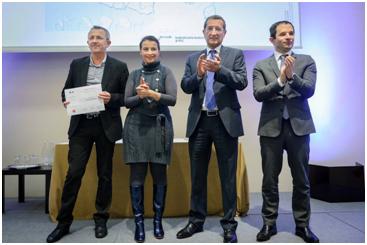Pôle sud Archer
Project details
- Main leader : Pôle sud Archer
- Type of initiative : Initiative involving different people (collective, etc.)
- Périmètre : Drôme
- Localisation : Impasse Alfred Nobel 26100 Romans
- Date de début : janvier 2007
Economy circular topics
- Extending useful service life
- Responsible consumption
- Industrial and regional ecology
- Sustainable procurement
- Functional service economy
- Recycling
- Eco-design
Description
Qualitative benefits
South Pole wants to develop and roll out its action plan in four areas:
- Mobilization of organizations that perform public service missions Through the regular presence of a “public employment service” (job centre, local mission, AFPA, etc.) and complementary stakeholders in associations (professional insertion, housing, addiction prevention, etc.) over 1,000 people are accommodated each year
- Meeting and discussion between stakeholders, promoting new models of development This area was very prevalent in 2007 when the centre began, with “Pôle sud stakeholder” meetings, organized every six weeks. Today, meetings have become less frequent and the Pôle sud is considering new means of promotion. Example of action: the writers of “L'économie qu'on aime! (The economy we love!)” Sophie Keller, Amanda Bartholomew and Roman Slitine address the issues of relocation, growth and job creation and present many business innovations such as the Archer group.

- Economic promotion The main economic promotional actions are: Association ERB (Romans / Bourg de Péage company) was born out of the common will of companies in the area to share solutions to common problems and to benefit companies and their employees; a service offering Association Romans Cuir, which aims to boost local production by hosting major projects and developing new brands; an activities and jobs cooperative (Coopérative d'Activités et d’Emplois - EAC), which specializes in local cooperation and offers collaborations between companies; Collines Bio, an association that distributes organic and local products via a short circuit.

- Economic action The three main types of action are taking over an activity or company, the fight against relocation, consulting and networking
Stages of the initiative
2007 Creation of the Regional Centre for Economic Cooperation (Pôle Territorial de Coopération Économique - PTCE)
2014 Pôle sud Archer wins the Pôle Territorial de Coopération Économique call for projects
Limits
- Limitations inherent in the mission set. Unemployment remains very great in the area and the solutions are never satisfactory enough, neither in quality nor in numbers
- Economic development policies are poorly coordinated with the actions of Pôle sud Archer and this undermines overall effectiveness
- The lack of promotional resources sometimes hinders collective approaches. SAS Groupe Archer plays a unifying role particularly because most members of the cluster are shareholders of the SAS, but shareholder meetings do not lead to sufficient operational actions. While the dominance of Groupe Archer is a strength for the project, it is also a limiting factor today: few actions are set in motion in Pôle sud without the Groupe Archer taking a significant share.
Areas of activity
- Agriculture
- Food
- Services
- Trade
Resources
- Use
Implementation
Technical resources
4000 m2 of equipped industrial premises (Forklift truck, compressed air circuit, etc.)
Human resources
PTCE Pôle Sud Archer groups together fifteen technically and commercially autonomous “clusters”. Management, financial management and human resources are transverse. It employs about 1,200 people (310 FTE)
Financers
- Région Rhône-Alpes
- Etat
- Collectivités locales
- L'association de chefs d'entreprise
- Groupe Archer
Share:
31
Moderator



